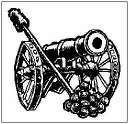
![]()

GOING UP: Where are rising house prices headed and what should we think?
House prices are rising in Charleston, and whether that's good
news or bad depends on your perspective.
The median resale price of a house in the Charleston metropolitan
area increased more than anywhere else in the nation three out of
the last four quarters, compared with the same quarters a year earlier,
according to the National Association of Realtors.
The local median resale price rose from $104,100 in the third
quarter of 1997 to $122,900 last quarter. That was an 18.1 percent
increase, the highest in the nation, according to the Realtors'
most recent report.
Median is the midpoint, meaning half sold for less and half for
more. Resale means the reports cover previously owned homes and
not new houses.
But demand for new houses is a big part of the reason resale prices
are rising, according to Al Parish, professor of economics and
director of the Center for Economic Forecasting at Charleston
Southern University.
"We are adding jobs at a remarkable rate - 17,000 new jobs this
year - and 80 percent of those involve new people moving into the
region", Parish said. "They have to have a place to live, and many
of them are making $40,000 a year or more, so they can afford nice
houses."
Also, Charleston continues to draw retirees, and many of them
come from areas of the country where houses cost more than Charleston,
so they have money to spend, he said.
Builders can't keep up with demand in many areas of the Lowcountry,
such as Mount Pleasant and Goose Creek, so prices continue to rise.
"It's basically a question of supply and demand", he said.
The average price of a new house in Charleston, Dorchester and
Berkeley counties rose from $153,637 in the third quarter of
to $166,216 in the third quarter of this year, an 8.2 percent increase,
according to Market Opportunity Research Enterprises, a company
in Rocky Mount, N.C., that tracks the local housing market.
Low interest rates also tend to raise selling prices.
"When it's less expensive to finance, selling prices go up", Parish said.
The average rate for a 30-year fixed-rate mortgage is about
6-1/2 percent. Parish predicts the rate may drop to 5-1/4 percent by next
spring, although not all analysts are quite so optimistic.
Some of the biggest price jumps in existing houses have been
in downtown Charleston, Seabrook Island and Kiawah Island, where
houses are generally more expensive than elsewhere. Those markets
have been fueled by a prospering stock market, which gives stockholders
money to invest in real estate, Parish said.
On the other hand, house prices have not been rising in some neighborhoods
around the former Navy base in North Charleston, which lost thousands
of residents after military cutbacks a few years ago.
What's the overall outlook?
"Up", Parish predicted. "I don't see anything on the horizon
to quash this market, except for some kind of dramatic increase
in interest rates. Local prices are still below the national average."
The national median resale price in the third quarter was $132,700.
Rising home prices mean good news for Realtors and sellers,
although bad news for buyers, especially first-time buyers.
"It's getting harder to find a starter home, and there are fewer
of them", Parish said.
But rising prices could be especially bad news for homeowners
wondering about their next tax bill.
"That's the time bomb that's ticking away", he said. "If people
see their property tax go from $1,000 a year to $4,000, you will see
a massive tax revolt. This is a very big problem, and something has
to be done very soon".
Residents of Berkeley and Dorchester counties are scheduled
for reassessment next year and Charleston County residents the
following year.
"We need a cap on reassessment", he said. "That's vital for the
coming Legislative session".
ED: Dave Munday can be reached at 937-5720 or at DMunday@PostandCourier.Com.
 Take me back to the top of Windsor Hill Parkway Association Home Page!
Take me back to the top of Windsor Hill Parkway Association Home Page!